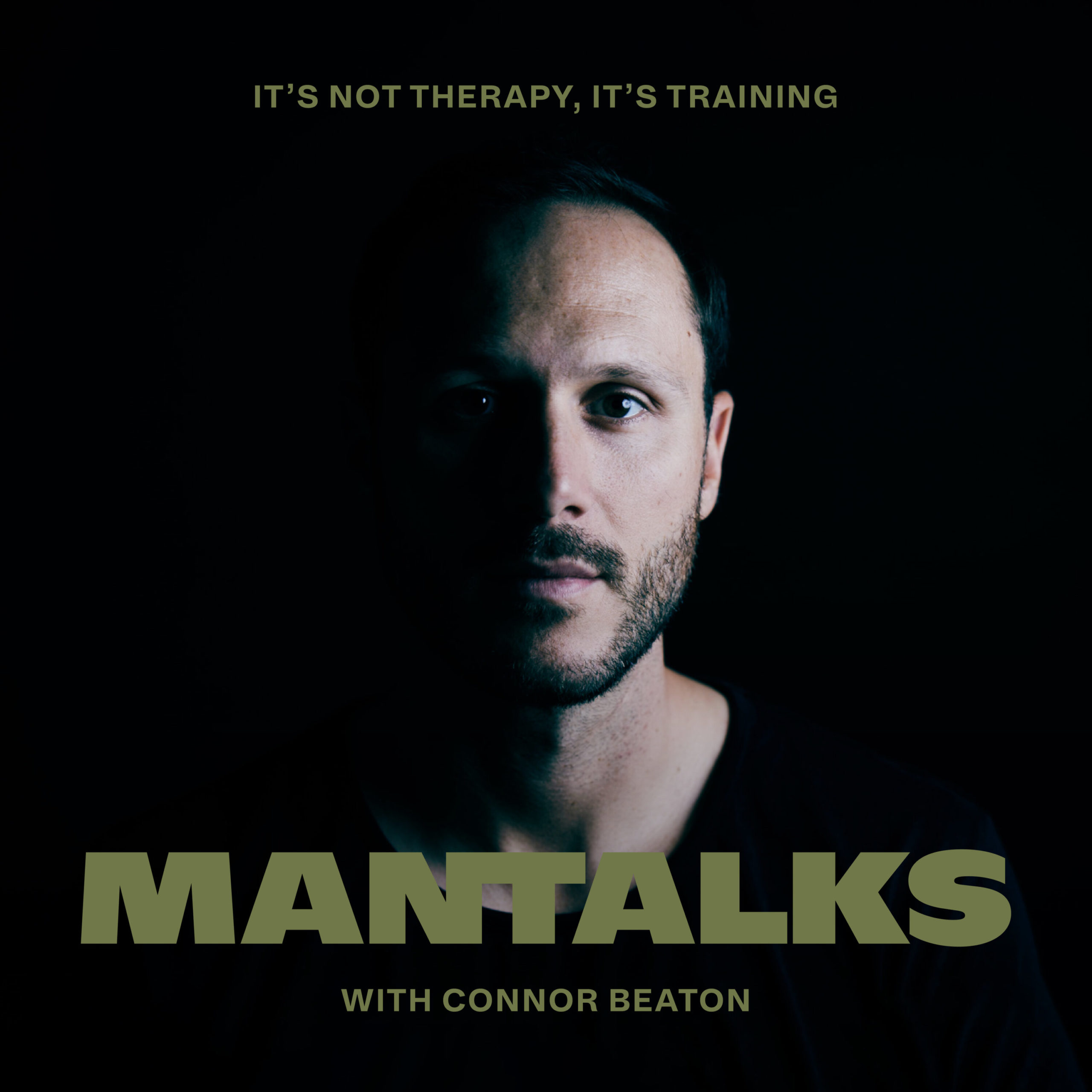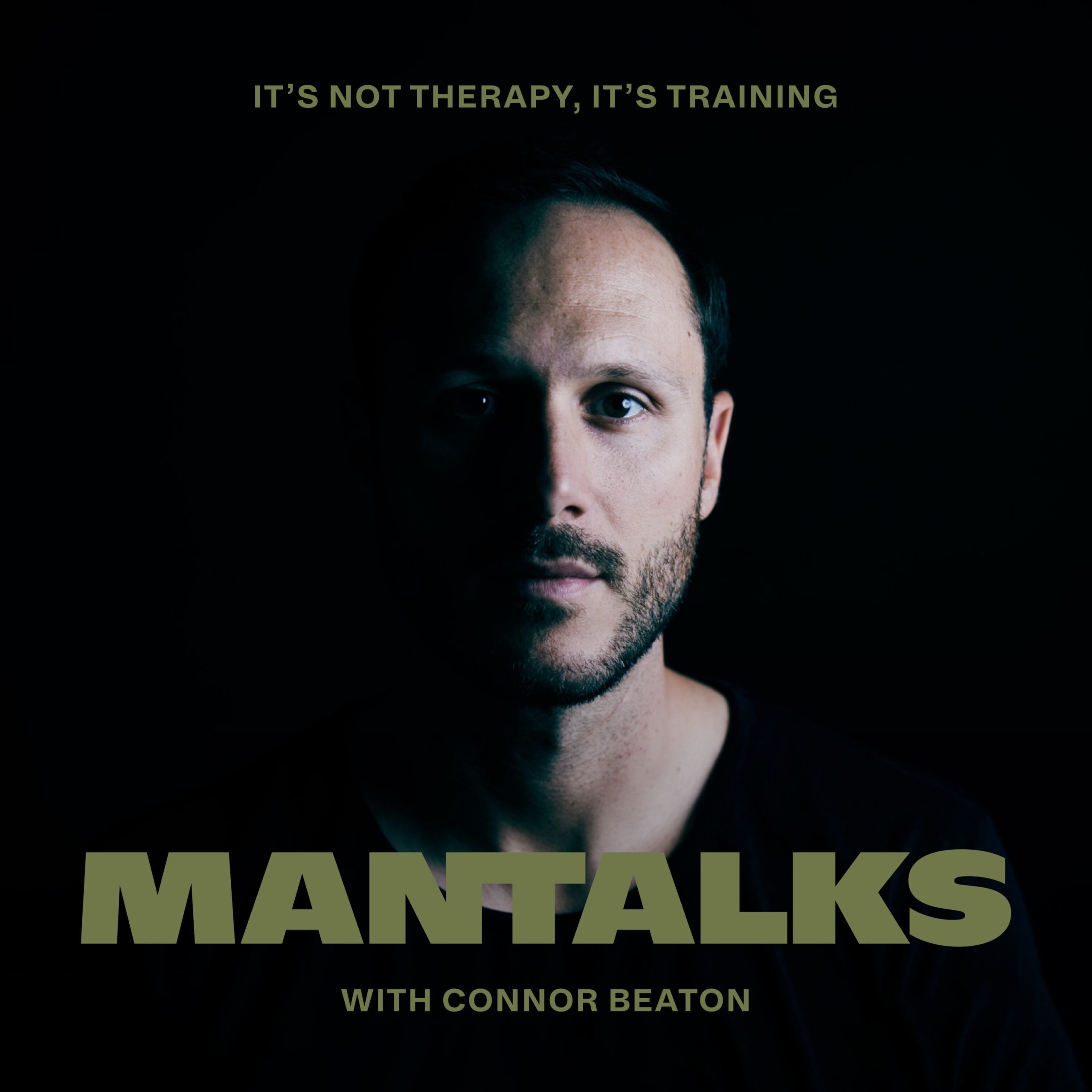Note: “How to Find Your Life Purpose: A Step-By-Step Guide” is a long-form DEEP DIVE article . If you don’t have time to read it now CLICK HERE to download it as a PDF. Or, if you want to be notified when we launch our purpose training CLICK HERE.
In this article we’ll walk you through the practical steps for how to find your life purpose. Follow these steps to create a powerful statement to guide you day-by-day. In case you missed it, please read the companion (non-practical steps) to this article “How to Find Purpose in Life: The Ultimate Guide“
Introduction: How to Find Your Life Purpose
I bet you’re jaded even by the word ‘purpose,’ aren’t you? I get it. So was I. There is so much bullshit out there. So much that it’s hard to talk about purpose without the fear of associating myself with the bullshit.
You know what helped me get over it? I did the ManTalks purpose training with my colleague and friend, Mike Muscari, who has driven the development of this program.
Mike talks about purpose a lot. He trains others to develop purpose. but what convinced me was actually seeing how he lives. It wasn’t some new-age nonsense in him. What I soon realized is that how matters. The method I outline below builds consistency and effort over years into the process.
Bold claim alert: follow this exact program and you WILL begin living with a real sense of purpose.
So, let’s get into it. Whattya say?
Step 1: Visioning
The first step to the intentional practice of purpose is to let the mind and heart contemplate (often) unexplored territory. We get so caught up in the day-to-day we rarely think about the bigger picture vision. By asking ourselves some important questions we allow ourselves to feel what matters.
Follow the below steps to complete the visioning process.
Grab a notebook and answer the following questions. When we do this process in our mastermind groups we give the members about 15 minutes. But since you’re doing this at home, you can take a bit longer. So take your time, and do as many revisions as necessary:
- Why do I exist?
- Where am I going?
- Whom do I serve and why?
- What do I have to offer?
- What are my current and projected outcomes?
A note on questions two and five. Question two means this: Assuming your life has a deep purpose (which it does) where is your higher purpose leading you? Where are you going on a deeper sense?
Question five means this: If you continue doing exactly what you’re doing now, where will you end up? What are the outcomes you can expect based on your current behavior?
After spending at least ten minutes thinking about and answering these questions take a small break. Move your body, go to the bathroom, do some pushups, or anything else that allows your mind to rest for a moment. When you come back, find a relaxing place (nature works well) and set aside some time to do the following:
Take out your notebook with the answers to the above questions and reflect on them.
Now use your imagination to create a vision of what that future might look like. This visualization allows you to try on your purpose in your imagination before you actualize it in real life. Here you will be writing freely, in paragraph style. It’s very important that you allow yourself to dream and your thoughts to be uninhibited by practical concerns. We’ll give you a practical plan below for handling those concerns. For now put them aside. Visioning is for dreaming big and being completely uninhibited. Use these tips to help you write your vision:
- Don’t think about present problems.
- Create vivid pictures of all the details of your future life. Where will you live, what does your family look like, how will you smile etc.
- Imagine what you love to do, what you want to become while referring to your previous answers.
- Don’t hold back on your ideas because of ‘practical’ limits. Don’t limit your creativity.
- Eventually you should settle on a future that ‘fits.’ It has to be truly your own, not anyone else’s dream.
- Write down that future in explicit detail and summarize the kind of person you need to be to create that future. Make this into a maximum one page statement.
Once you have created this document you’ll feel a sense of confidence and relief. It might also feel like an impossible dream that’s daunting to achieve it. Don’t worry, we’re going to break this big vision down into bite-sized chunks.
Click on the Image Below to Take Our Short Purpose Quiz

Step 2: Goals
Whereas the above section was all about envisioning how your purpose looks, this section and those below are a comprehensive (but easy to follow) plan to achieve your vision. From your larger dream life, you’ll set up goals that’ll build you towards your purpose.
But even goals are too big of a unit to guide your actions. Which is why, below, we’ll further break down goals into objectives. Goals are still useful, though, as they are the steps you need to take to live outyour purpose.
Let’s take a look at an example: If part of your vision is to travel to France and immerse yourself in the culture, then you might reasonably conclude that you need to learn French. So, your goal might be: “to be able to have a conversation in French one year from today.”
Notice how specific the goal is. It has a clear marker of success (being able to have a conversation) and a date by which it will be achieved (one year from today).
__________
Note that learning French is only important to the person whose purpose is to travel to France and immerse themselves in the culture. If your purpose was to take a one week guided tour of France, you might reasonably conclude that learning French isn’t an important goal. Do you see how personalized your goals must be? And how specific your vision must be in order to create goals?
Note: Keep your goals simple. Do not make a laundry list. You will fail on every goal that isn’t TRULY part of your vision. This is okay, too, though, and isn’t reason to abandon the process. Over time, you’ll remove goals that aren’t truly connected to your purpose. In fact, these will become painfully obvious as you review your purpose quarterly (we’ll talk more about that below).
Step 3: Objectives
Goals are major milestones that express your living out of your purpose. But goals are often daunting. If your goal is big enough, there likely won’t be a direct path to it. Each different goal will likely require you to learn new skills, receive help, face fears, invest money, and most of all make major sacrifices.
Using our example from above: Most second language learners fail, because they soon realize how much work it takes. It’s a daunting task and most people drop the goal instead of doing the work. But an excellent language teacher will chunk down the big goal of learning the language into smaller parts so you can learn bit-by-bit until you reach the larger goal.
And this is what you will do with your goals. Each goal will have a series of objectives that you must complete in order to reach the goal. By breaking down your goal into smaller, achievable bites, you live out your purpose step-by-step.
So, some smart objectives for ‘being able to hold a conversation in French by one year’ would be things like:
- Begin French classes within the next month
- Find a French conversation tutor within the next two weeks
- Develop year long study plan (with tutor) within the next month
You get the point. Objectives are where you get specific. Note: sometimes there are things you don’t know and will have to learn before you can even set intelligent objectives. In this example, the objective of setting a year long study plan are meta-objectives that will inform the rest of your objectives.
Once your tutor teaches you what you need to do, you can set better objectives that are more likely to get you to your goal. Google is your best friend. You will succeed when you have a correct picture of the true path instead of setting goals and objectives blindly.
Note also that properly executing an objective will spawn a whole new series of objectives. Under the “develop a year long study plan” objective you might end up with other objectives like mastering:
- French verb conjugation within 7 months
- 200 most commonly used French words within 7 months
- French phoneme pronunciation within 2 months
- French prepositions within 4 months
While it might seem like creating goals and objectives adds to the process, it actually speeds you up. Every major goal is broken down into a thousands of small parts. I’m not suggesting that you need to state every objective. But the first layer down from the main goals is vital. After that, just be aware that new objectives will arise. Continue thinking in terms of small chunks to be completed every day. This will keep you on track and ensure you don’t get distracted like a squirrel with ADHD.

Step 4: Determine the Cost
Now that you have clear goals and objectives in addition to your purpose vision, you MUST take the vital step of determining the cost. This is non-negotiable.
People are good at getting excited by big goals then failing to arrange their lives to achieve these goals. If learning French within a year is truly your goal, then it WILL come at the cost of something else in your life.
Everyone’s life is completely full all the time — even if you waste a lot of time. It just means your life is full of time-wasting activities. Regardless, it’s still full. So, if you want to do something new you’ll have to sacrifice something, even if it’s just Netflix.
This is an immutable law of nature. But sadly, many people never understand this. So they set goals without taking the action to achieve them, because they’re not willing to sacrifice something else. The goals and objectives remain pie-in-the-sky, and we continue thinking ‘one day I’ll do it.’
There are aspects of your life that you won’t be willing to sacrifice. If, like me, you’re a husband and father you might not be willing to give up being available for your family. In my life, any goals and objectives cannot come at that cost. In fact, these immutable commitments are a part of my purpose. Yet, there are other things I’m willing to give up to reach my objectives, like weeknight Netflix.
So, I’m not willing to pay the cost of no family time, but something must go in order to achieve a new goal. For most people this is simple: you should be willing to give up the time that you waste, while still taking care of your health and relaxation needs.
Whatever the cost, you must be able to identify it. It might be time, money, or both. What is the price you’re willing to pay to achieve the goals and objectives you’ve identified? If you find, after an honest inventory of costs, that you’re not willing to pay the price for a certain goal or objective, then the only option is to delete or alter the goal.
But here’s what’s more common: people are attached to their habits and wasted time. We struggle to sacrifice for a better future. Think honestly about what you are creating with your future if you fail to pay the cost. Do you really want to be the person who refused to give up getting drunk on weekends or watching Netflix to achieve his dreams?
This can’t be said with enough force: setting a goal or objective without being willing to pay the price will ensure you fail.
Go through each one of your goals and determine what it will cost you. Write down the cost. Ask yourself if you’re willing to pay it. Then pay it in every action you take.
Step 5: Accountability
Do you know why school, fitness classes, clubs, communities, and masterminds work? Because groups of people doing the same thing produce accountability and positive expectancy.
You’ve probably have had a friend you just knew would be getting drunk whenever you go out with them. These people will peer pressure you, laugh, be gregarious, and for all outward appearances make it seem like they’re having fun. They will buy you drinks. They will try to persuade you, they will belittle you, and they will outright push drinks into your face to try to get you as drunk as they are. The more time you spend with these people, the more likely you will get drunk.
You know this to be true.
The same could be said for any behavior. Some friends eat unhealthy food. Some will be constantly negative. The same is true for those exhibiting positive behaviors. If you have friends that exercise, read, have healthy discussions, and push each other to achieve goals it will rub off on you, too. Whatever you surround yourself with, you will be more likely to become.
“You are the average of the five people you spend the most time with.” Jim Rohn
So, now that you’ve envisioned your purpose, set goals and objectives, and determined the cost it’s time to consider your environment.
Who will you surround yourself with?
Do not delude yourself here and say “My friends are a positive influence,” if they aren’t. Sadly, not many people are living a life of purpose. Most people never consider what they’re doing and have no qualms about letting their negative habits rub off on you. Some of your so-called friends will be fine with wasting year after year on trivial things, their quality of life falling day-by-day, and never question why it’s happening much less do something about it.
I’m not saying you should ditch all your friends. But, I am saying you need healthy boundaries and you need to be intentional about who you surround yourself. The ManTalks Mastermind grew out of this need. Men were asking us to create an accountable community where they could work with other like-minded men and hold each other accountable to living their purpose.
In person community is best, but if that’s difficult to achieve for you right now, a positive online community is better than nothing. (You can join our free FB community here.)
Most people love imagining their dream life, but when you ask them to get in the mud and make it happen, they often disappear. Don’t feel bad, this is natural. We are built to (and taught to) avoid things that feel bad or are uncomfortable. But there is a rare class of friend who will stand by your side as you do the work. These people are usually also doing the work.
But I can guarantee you one thing: pursuing your dreams and realizing your purpose will require you to step outside your comfort zone. You will fail repeatedly. You’ll be ridiculed by some ‘friends,’ and your family often won’t understand.
You get the picture, things will get messy.
This is where accountability steps in. Have you ever tried to wake up early to get to the gym, then when you check your phone you realize you could sleep another two hours if you just skip the gym. You’re tired, you’ve had a long week, your legs are sore, you might have a bit of a cold etc. etc. So, you hit ‘snooze.’
Now imagine your alarm goes off in the morning, you look at the screen and it’s a text from your buddy saying, “I’m out front let’s go!” How much more likely are you to get out of bed? Positive social pressure is a powerful reminder.
In fact, “The American Society of Training and Development (ASTD) did a study on accountability and found that you have a 65% of completing a goal if you commit to someone. And if you have a specific accountability appointment with a person you’ve committed, you will increase your chance of success by up to 95%.”5
So if you want to increase your chance of achieving your goals and objectives (and therefore finding your purpose) by 95%, you’ll have to create accountability. One of the most common and powerful ways to do that is by joining a quality mastermind. (Check out our guide to finding a mastermind here.)
“Every mind needs friendly contact with other minds, for food of expansion and growth.” ~Napoleon Hill.
Remember Mark from above? A key piece of his story is that he began to surround himself with like-minded people. Mark joined a men’s mastermind and found not only great friends but new mentors and men who inspired him, whereas his former social circle consisted of others like him who were watching Netflix, surfing Facebook, and not living purpose.
By joining the mastermind group, Mark instantly surrounded himself with several more smart, driven, and forward-thinking men, something he was woefully lacking before. The impact of this decision cannot be understated and the rewards from this decision will play out for the rest of his life.

Step 6: Evaluation
Many people have ‘done personal development,’ set some grandiose dreams and then abandoned the process. The reason is always the same: ‘life gets in the way.’ Grand pronouncements about what you’re going to do run up against the brick wall of reality. As Mike Tyson famously said, “Everyone has a plan until they get punched in the face.”
Face punches are surprisingly common, especially considering we are all complex human beings with various degrees of damage to our psyches. The face punches more often than not come from within.
The first Monday after deciding to ‘change our life’ we wake up in the morning and realize the odds are stacked against us. Bed is more comfortable than the gym. A bowl of sugary cereal is more alluring than a healthy breakfast, and it’s easier to continue on in the job we have than it is to make a plan, save money, and learn new technical skills to get a new job.
Overwhelm is real and our discipline — even if you’re a Navy Seal — is imperfect. Many people eventually decide that real change simply isn’t worth the effort.
This is why it’s vital to build a resilient mindset when working towards lasting change. You WILL stumble and you WILL drop off on your commitments. You WILL fail — over and over again. But it’s up to you whether you treat your failures as final or temporary.
This is why evaluation is important. Even though you’ll be setting out to achieve specific goals and objectives and to live a life of purpose, you won’t be perfect in hitting your targets or goals. Some of the things you write down as goals won’t even be important to you, and only once you evaluate your progress will you realize this.
By regularly evaluating your purpose and progress, you’ll bring yourself back to the process. You will develop greater discipline and personal responsibility. Through evaluation you soon realize it’s not life, circumstance, or other people who bring you off your purpose — it’s yourself.
So, you slowly get into alignment with your purpose. Do NOT expect to master this in a day, week, month, or even year. This is a lifelong process.
So here’s what to do: set dates to evaluate your progress. I read my purpose statement regularly and do a full evaluation quarterly. This appointment is in my calendar just like any other important meeting that I would not want to miss. My calendar reminds me in advance so that I don’t make other plans on evaluation day.
Here’s what you’ll find: working on your purpose statement is fun. The appointment only exists to remind you. It does NOT feel like work. It feels like a creative, fun process. But it only feels that way if you don’t judge yourself harshly for failures. Just have fun with it, accept your imperfections, and resolve to be better next time.
Don’t be negative or angry with yourself if you haven’t progressed as much as you’d have liked. Just take a breath and recommit to your purpose, and most of all recognize the amazing things you’ve done. This is an art not a science. If you achieved every goal, set bigger goals next time. The sweet spot is finding the balance between challenge and success.
This brings us to the final step.
Step 7: Revision
At the same time as you evaluate your progress and purpose statement, you will revise it. I keep my purpose statement, goals, objectives, and cost analysis in my google docs and treat it as a living document that’s never complete. I print a new one every three months when I spend a half-day evaluating and revising.
That physical copy exists as my statement to remind me to live my purpose in action. I take it out and read it often. It especially helps when I get overwhelmed or feel like I’m off my path.
When revising you are free to change anything on your statement (vision, goals, objectives, cost, or accountability), but there is a useful guideline to follow when changing goals or objectives: only change goals or objectives if absolutely necessary.
Never give up on a goal just because you didn’t reach it or because it was hard. Let goals go if new information or awareness tells you the original goal wasn’t necessary for your progress. Keep your plan flexible. As you try new things and learn more your plan must adjust. This is what the routine check-ins are for.
More on the ManTalks Blog for How to Find Your life Purpose:
How to Find Purpose in Life: The Ultimate Guide
Self-Confidence for Men: The Ultimate Guide
__________
About the Authors


Michael is a lifestyle architect, serial entrepreneur, biohacker, and purpose seeker. He credits much of his success to a deep personal commitment to living a life of purpose.
Seeing the benefits of living with purpose, Mike now does detailed purpose training both within the ManTalks community and externally. To contact Michael about the ManTalks Mastermind or his purpose training, email [email protected].
Thomas Walker is a frequent contributor to ManTalks. He is also the co-founder of Metta Natural Awareness Beverage, a revolutionary drink built around helping peoples bodies adapt to stress to improve their performance.
Thomas is a passionate fitness enthusiast and world traveller. He gave up a career in law to pursue his passions and become an entrepreneur. He has re-invented his life a number of times, constantly using a return to his deeper purpose to guide him.
Thomas is constantly on the lookout for tools and methods to help himself grow. He is active within the ManTalks community and a proud mastermind member. To contact Thomas go to drinkmetta.com or projectkailo.com






